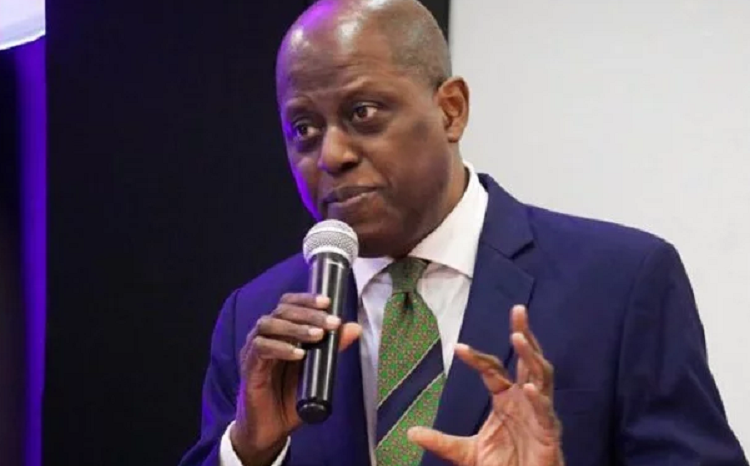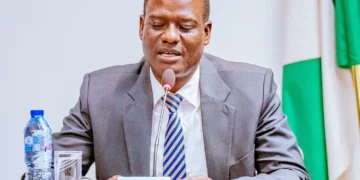Governor of the Central Bank of Nigeria Olayemi Cardoso has said the decision to order the recapitalisation of all Nigerian banks was taken to ensure that the financial institutions are able to survive in the event that there is shock at any levels in the economy.
“And that was one of the reasons that informed our decision to increase the share capital, knowing that a lot of them will need this liquidity to be able to survive in the ensuing economic tendencies,” Cardoso said yesterday in Abuja at the launch of Afrinvest 2024 Nigerian Banking Sector Report. He said the recapitalisation programme will increase the lending capacity of the banks.
He also said the exercise will increase foreign investments in Nigeria.
Upon assumption of office on May 29, 2023, President Bola Ahmed Tinubu announced a self-imposed mandate of growing the economy to $1.0 trillion in the next eight years (2022-year end: $472.6bn, World Bank). The ambitious target was anchored on broad-based reforms and an all-inclusive transformation initiative.
In the report that was unveiled in Abuja yesterday, Afrinvest said the future looks bleak for the banking sector if the high inflation scourge is not demystified in the near term due to its interconnectedness to other segments of the economy.
One of Cardoso’s policy targets is recapitalising the banking sector to drive the attainment of a $1trn GDP size by 2032.
While banking recapitalisation is instrumental to economic growth and development, Afrinvest said it is necessary to prioritise robust yet market-supportive regulations.
“This ensures that as banks increase their capital and expand their assets, these resources are deployed responsibly. “The banking industry must uphold its independence while aligning with fiscal objectives such as the trillion-dollar ambition,” the firm said.
Afrinvest said it expects bank recapitalisation to be instrumental to boosting infrastructure development in Nigeria.
“By increasing banks’ lending capacity, recapitalisation should mirror the positive effects seen in South Korea after its financial crisis.”
Afrinvest recommended that banks should strive to enhance their risk management framework, scale-up investment in cost-effective digital channels, and explore new business opportunities in both lateral and vertical segments to enhance resilience against systemic risks.
Meanwhile, economic experts have said it will be impossible for Nigeria to hit its $1 trillion economic target without setting its priorities right. For instance, managing director, Saro Africa International, Rasheed Sarumi said Nigeria must ensure it has excess agricultural output to meet the target. “The government has to realise its limitations in agriculture,” he said, adding that the current insecurity in the country has undermined every effort to boost agricultural output. Sarumi said private sector innovation should be enhanced to drive excess output and ensure food security.
Speaking to the theme ‘Bank Recapitalisation: Catalyst for a $1 trillion Economy’, chairman of the presidential committee on fiscal policy and tax reforms, Taiwo Oyedele said the current practice of taxing production and poverty in a bid to raise revenue will not yield the desired result. He said “We need to tax appropriately to make money… with that we can have our economy grow significantly.” He said there is enough room for improvement in the government’s revenue mobilisation endeavour.
Represented by an acting director in the central bank, John Simon Onoja, the CBN governor said the recapitalisation exercise will ensure the dilution of shares and ownership for those who are even smaller investors. “Again, another opportunity has come for the smaller investors to be able to own part share in the financial institutions, which we know have always been doing very well. The equity market also is already being boosted.”





